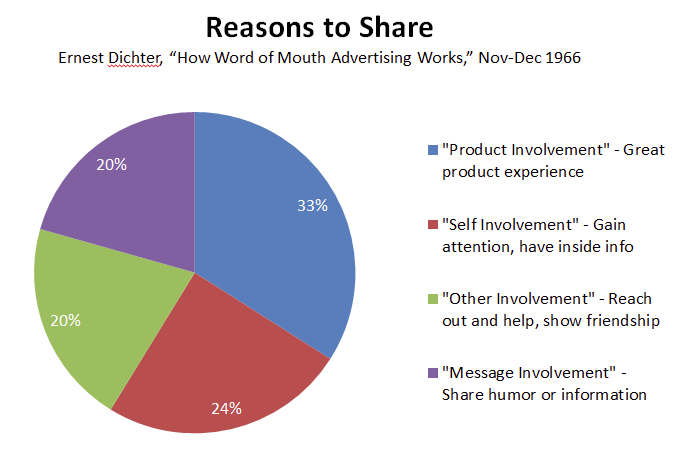In an earlier post, we described how the term “social search” can be roughly translated to mean “searching the social Web” for many of the offerings out there. We argued that social search can be thought of as a process, not just another source of results. Also, the differing intents behind sharing on social networks and searching may result in lower relevance when using social posts as search result recommendations. Here we will discuss how the social Web – although undoubtedly a useful source of relevant results for searching – may not cover the gamut of peoples’ searching interests and that the motivations behind posts on social media sites may limit their usefulness as a reliable source of search recommendations.
Sharing is only partly caring
The psychology of sharing has been well studied in recent times, with many motivations identified as to why people choose to post things to social media. Altruism, self-promotion, validation, relationship-building; all feature across various studies, as does building thought leadership or authority, image- or brand-construction. Even altruism itself can be viewed as self-serving, though studies have shown that humans may possess an “altruism instinct“.
Some commentators simply say that people share content online to make themselves feel a particular way. As far back as 1966, Ernest Dichter showed that only 20% of word-of-mouth is motivated by altruism and perhaps even more interesting, only 33% is motivated by the sharer’s product experience (see Figure 1). In a recent blog post we discussed the difference between the content we share and the content we consume on the Web.

Figure 1: According to a study from the 1960s, only around 20% of the time that we share, we’re motivated by altruism
So can we trust what people are posting? If self-promotion or image plays such a large role in determining what content people choose to share on social networks, will that content be useful to me? And most importantly, since the intent when searching is entirely different to that when sharing, is there a logical gap between the two activities?
Luckily, it’s exactly the self-image that people seek to improve that might make shared content relevant, at least for regular people (there are a lot of spammers churning out high volumes of low-quality posts who couldn’t care less what people think of them!). Keeping up appearances means at least trying to apply a quality filter.
Unlocking Altruism
In a research paper we wrote a few years back titled “The Altruistic Searcher“, we showed how the behavior of searchers could reused to help future searches. Although sometimes we will search to help others (i.e. to re-find a link we have previously seen or simply to find content to pass on), quite often search is a selfish activity – all we want is relevant content in response to our query. The point is that our search behavior provides more authentic signals of our true interests than the content we choose to share on social media.
The primary signal for user profiling that we use at HeyStaks is search behavior. By capturing search activities and recommending results from recognized authorities to people with similar interests, the selfish act of searching is made more social and even altruistic. I search and find content on topics I am interested in, and this later helps others to find content more easily – free feel-good!
In this way, no change of behavior is required on the part of searchers – they can continue to search selfishly. In fact, this very selfishness is what delivers the high degree of relevance seen in social search scenarios supported by HeyStaks. We don’t search to “look good”, create a personal brand or validate ourselves – we search to find the most relevant content as quickly as possible. With this natural “relevance optimization”, the most relevant results from searchers with high reputation or authority can be recommended, without worrying about their original motivations.
Can shared content be fully trusted, given the varying motivations of the sharers on social networks? Does your sharing activity provide a true reflection of your interests? We’d love to hear what you think in the comments.


